


On this page

If this related to different individuals, then 72% of the army were included - the rest were probably dead.
So why did so many volunteer for this miserable war...?
.Researcher: Joan West

It was just a poster with Lord Kitchener, military leader and Secretary of State for War, pointing straight at them, and they volunteered in their thousands. Now in 2014 you wonder why it had such an effect. But this was 1914, and one reason might have been that life was not so good at home.
This was a rural parish, most people worked in agriculture when there was work to do!! No work meant no pay. Between 1870 and 1889 a series of wet summers began the agricultural depression. Then 1890-94 five years of droughts made the depression much deeper. In 1891 a great blizzard in May with snow, hail and frost caused many deaths. In 1893 a drought dried up pastures, vegetables, fruit and arable crops. Ponds dried up. (there was no tap water until 1934). 1903 was very wet and crops were ruined. In June 1912 a massive volcano in Alaska and others in Central America and the Caribbean, including 'Pelee' in Martinique filled the sky with ash, blocking out the sun it made the summer cold, grey and stormy.
Thus from 1870 agricultural work had been uncertain. Some years whole crops had been ruined, so no harvest. Those years hit people the hardest as their gardens would have suffered likewise. So then, no pay and no produce. It continued wet and WW1 is reknowned for the mud.
Your Country Needs You Meant Work And Pay.
The cottages were not large, they were damp and dark. Cooking was, more often than not, in a pot hung over the fire. To combat the damp the fire would be kept going all the time, banked up at night. In the 1850s there had been many acres of woodland from which the people could gather fallen wood. By late 1890s there only remained the roots (shucks). By 1911 there were no woods left. Now, how to keep the cottage dry and to cook?

At Hampden the private estate had woods which occasionally they thinned or felled, selling the trees by auction. Some would be bought by 'bodgers' who turned legs and arms for Windsor chair makers in High Wycombe. These were for sale. They also sold bundles of faggotts (kindling). Maybe they took some home and certainly the shavings (also saleable, e.g., for butchers'shop floors) and sawdust would bank a fire up at night.
How did those who were not bodgers manage? The poster meant work and pay.
When the war began to take such a heavy toll on life the poster disappeared and call-up began. First only single men aged 14-30, then married men were added. Lastly it was extended up to 40 years.
37 men died from this parish.
Countless others came home suffering from shell shock, survival guilt, mustard gas and depression.
Very few ever talked about it.
.The Dormer family, Well Cottage, Loosley Row
1914 did not start well for my grandparents' family. Grandfather Charles had recently lost his sight following an illness the previous year, and he never saw son Percy, who was born in 1914. Life on the pay of a road mender had never been easy, but with a new baby and Gran only able to work part time as a housekeeper things were even harder.
Help for the blind was limited compared with the present day. Gramp was given a white stick and taught to read Braille. He also learned how to knit, and made many woollen scarves for the troops. He was awarded a badge to mark his efforts and wore it proudly on his lapel for as long as I can remember.
We presume some troops were stationed locally soon after war was declared, as a soldier was billeted with the family for a short while. Daughter Ivy, aged seven, had to sleep at a neighbour's house as Well Cottage had only two bedrooms, or to be more precise, one bedroom and a landing area with the children's beds.
By all accounts, the neighbour's bed in which Ivy slept was damp, which she always considered the reason for her developing rheumatic fever and scarlet fever at the same time, and from which she wasn't expected to recover. She was taken to the isolation hospital at Booker on the outskirts or High Wycombe, pictured in a postcard given to her by the matron. Unless there was the rather unlikely chance of a lift in a farm wagon, the only way that her mother could visit her was for her to walk all the way there and back in one day, a round trip of about sixteen miles. Not surprisingly, poor Gran only managed to visit Mum once or twice during her stay in hospital, but she did recover and came home.
We have no record of how long the soldiers stayed or where they went afterwards. Presumably they were either on training exercises or being gathered together before moving on to an Army Camp.
.The Weller Family of Foundry Lane
Tom Weller was conscripted in the summer of 1916 and served in a labour battalion with the BEF in France until 1919. He was 31 when he was called up, and had four sons aged five to eleven. His wife also had two sons from the first marriage, Alfred, who was old enough to join the Army himself, and William who lived with his grandparents after his own father died.
My Dad, Harold, the oldest of Tom's sons, was already helping to support the family by working on a local farm after school and at weekends and holidays, but when his father left for the army, he became the main breadwinner.
A combination of the family's need for income and the general shortage of farmworkers as more and more men joined the forces meant that he was allowed to leave school as soon as he could pass the leaving test, probably aged twelve or thirteen. He became adept at ploughing with a team of horses and won prizes in competitions. He also had to lead the horse and cart to and from market in Thame, Risborough and Wycombe, as well as general work on the farm.
At this time the family lived in a thatched cottage in Foundry Lane, on the right of the road between the Foundry and College Farm. It was in a very poor state of repair, and at night the children were kept awake by the noise of the rats scrabbling around in the straw above their heads. Not long afterwards, the cottages were condemned as unfit for habitation and replaced by two houses in one of which Mrs Kirby lived when I was a child.
Farming wasn't to be Dad's calling, and as soon as possible after his father returned, he was apprenticed as a bricklayer and remained in the building trade until finally retiring at the age of 76.
Notes:
PC = On tablet in Lacey Green Parish Church
GOR = On Memorial in Garden of Rest, Main Road, Lacey Green (formerly Methodist Cemetery)
LRB = On tablet at entrance to Loosley Row Baptist Cemetery
SB = On tablet in lych-gate at Speen Baptist Church
Owen Adams (PC/GOR)
Private 12648, Oxford and Bucks Lt. Infantry, transferred to (222939) 221st Div. Employment Coy., Labour Corps.
Died Friday 29th March 1918. Aged 34. Son of George & Mary Adams. Husband of Eva Adams.
Memorial: Pozieres Memorial, Somme, France. Panel 94.
Owen Free Barefoot (PC/GOR)
Private 21001, 6th Bn., Oxford & Bucks Lt. Infantry.
Died Saturday 7th October 1916. Aged 28. Son of Oliver & Mary Ann Barefoot of Lacey Green.
Memorial: Thiepval Memorial, Somme, France. Pier and Face 1OA and IOD.
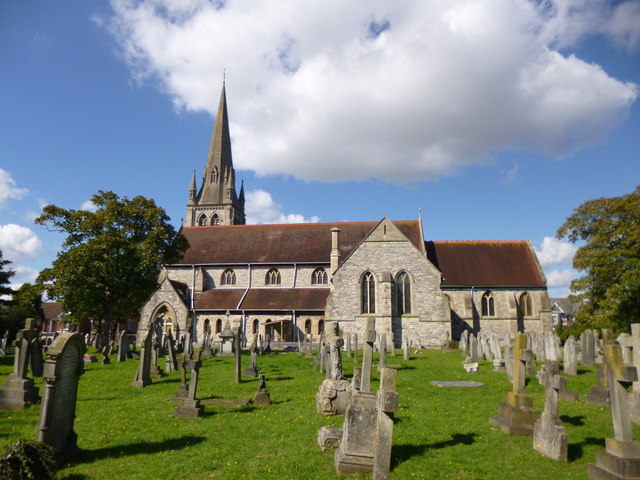
Harry Burrows (PC/SB)
Private 22616, Oxford & Bucks Lt. Infantry.
Died Thursday 16th March 1916 of cerebral meningitis. Son of Mr & Mrs Burrows, The Plough, Flowers Bottom, Speen.
Cemetery: St. Mary's Churchyard, Longfleet, Dorset.
William John Currell (PC)
Private 29999, 2 Bn., Royal Warwickshire Regiment.
Died Monday 30th July 1917. Aged 20. Son of Free & Elizabeth Jane Currell, 1, Kiln Lane, Lacey Green.
Cemetery: Grevillers British Cemetery. Grave: VI. C. 12.
Charlie John Currell (PC/GOR)
Private 267275, 2d11st Bucks Bn., Oxford & Bucks Lt. Infantry.
Died Monday 2"' April 1917. Aged 31. Son of George Currell, Kiln Lane, Lacey Green.
Cemetery: Vadencourt British cemetery, Maissemy. Grave: V. A. 4.
Harry Dean (PC/SB)
Corporal 6277, 18th (Queen Mary's Own) Hussars.
Died Tuesday 25th May 1915 of gas poisoning. Aged 21 years. Son of John Dean, The George, Speen. (late Crendon St. High Wycombe.
Cemetery: Bailleul Communal Cemetery Extension, Nord, France. Grave: I. F. 67.
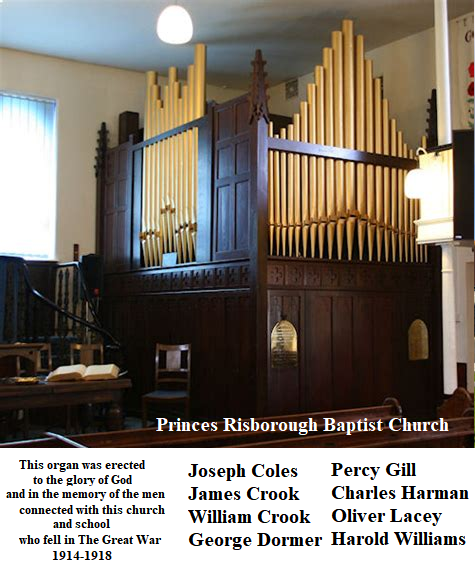
George Dormer (PC/LRB)
Gunner 208316, 'D' Bty. 78th Bde. Royal Field Artillery.
Died 6th September 1918. Aged 33. Husband of Ethel Leah Dormer, Parkfield, Princes Risborough.
Cemetery: Lebucquiere Communal Cemetery Extension. Grave: II. H. 4.
Harry Jonathan Dormer (PC/LRB)
Private 37825, 1st,5th Bn. Duke of Cornwall's Lt. Infantry.
Died 8th August 1919 from measles (?). Aged 19. Son of Laura Dormer of Princes Risborough.
Cemetery: Mont Huon Military Cemetery, Le Treport, France. Grave: X. D. 6B.
Sidney William Gibbons (PC/SB)
Private 23679, 6th Bn. Oxford & Bucks Lt. Infantry.
Died Saturday 9th June 1917. Aged 33. Husband of Sarah Gibbons of Speen, Bucks. A native of Speen.
Cemetery: Etaples Military Cemetery, Pas de Calais, France. Grave: XXV. H. 11A.
William Gibbons (PC/SB)
Private 202370, 2114th Bn., Oxford & Bucks Lt. infantry.
Died Wednesday 28th February 1917.
Memorial/Grave Ref: Thiepval Memorial, Somme, France. Pier & Face 1OA & 1OD
Daniel James Rupert Ginger (PC/GOR)
Enlisted in the Inniskilling Dragoons 12th October 1908.
Shoeing Smith 2627, 4th Dragoon Guards (Royal Irish) Dragoon Guards.
Died Saturday 30th November 1918 of bronchopneumonia at Military Hospital, Nivelles. Aged 31. Son of Oliver George & Clara Ginger of Lacey Green.
Cemetery: Nivelles Communal Cemetery, Nivelles, Brabant wallon, Belgium. Grave: II.
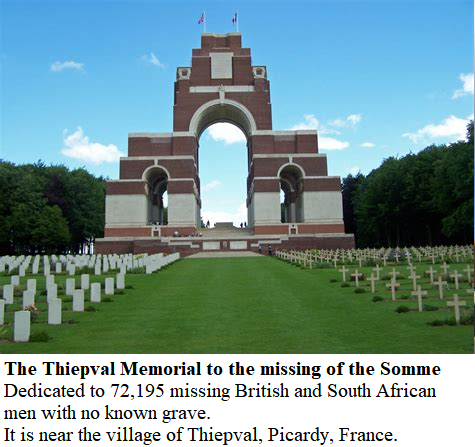
Arthur Walter Ginger (PC/GOR)
Private 24856, 5th Bn. Oxford & Bucks Lt. Infantry.
Died Saturday, 29th September 1917. Aged 26, Husband of Ruth Elizabeth Ginger. Son of George & Clara Ginger of Lacey Green.
Cemetery: Bethleem Farm West Cemetery, Mesen, West-Vlaanderen, Belgium. Grave: D. 22.
William Ralph Gomme (PC/LRB)
Private 51172, Princess Patricia's Canadian Lt. Infantry, (Eastern Ontario Regt.)
Died Saturday 8th May 1915.
Memorial Ref Ypres (Menin Gate), leper, West-Vlaanderen, Belgium. Panel 10-58.
Frederick Harvey (PC/GOR)
Private 80009, 1st Bn. Sherwood Foresters (Notts & Derby Regt.).
Died Tuesday 31st July 1917. Aged33. Son of Benjamin & Elizabeth Harvey of Lacey Green. Husband of Rosanna Harvey.
Memorial Ref: Ypres (Menin Gate), leper, West-Vlaanderen, Belgium. Panel 39 & 41.
Alfred John Janes (PC/GOR)
Private PLY/2061 (5), Royal Marine Lt. Infantry.
Died Friday 26th October 1917.
Memorial Ref: Tyne Cot Memorial, Zonnebeke, West-Vlaanderen, Belgium. Panel 1 & 162A.
Frederick Wilfred Janes (PC/GOR)
Corporal 21818, 16th Bn. Cheshire Regt.
Died Tuesday 24th April 1917. Son of Mrs. E. Janes, The Crown, Lacey Green.
Cemetery: Chapelle British Cemetery, Holnon, Aisne, France. Grave Ref: III, E. 12.
Alfred Janes (PC/GORJLRB)
Private 22505, 2nd Bn. Oxford & Bucks Lt. Infantry.
Died Wednesday 9th August 1916.
Memorial: Thiepval Memorial, Somme, France. Pier & Face IOA & 1OD.
Edward Lester Janes (PC/SB)
Private P0/1917(S) 'D' Coy., Royal Marine Lt. Infantry.
Died Sunday 7th April 1918. Aged 32. Husband of Lucy Janes, Aveluy Cottage, Speen, Bucks.
Memorial: Pozieres Memorial, Somme, France. Panel 1.
Wallace McCaskie (PC/LRB)
Sergeant 2245, 3'' Bn. London Regt. (Royal Fusiliers). (CL)
Died Yd October 1916.
Cemetery: Bernafay Wood British Cemetery, Somme, France. Grave: L 79.
Michael James McDonald (PC)
Private 331543, The Kings (Liverpool Regt.) 2j19th Bn.
Died 1st August 1917 from wounds. Aged 20. Husband of Edith Mcnee McDonald of Lacey Green. Son of James McDonald of Liverpool.
Cemetery: Estaites Communal Cemetery Extension, Nord, France. Grave IV.E.8.
George Parsiow (PC/GOR)
Bucks Territorials. Drafted into Oxford & Bucks Lt. Infantry. Private 265417.
Died 11th January 1919 as a result of wounds and POW. Aged 26. Son of Peter & Martha Parslow of Lacey Green.
Cemetery: St. John's Churchyard, Lacey Green.
Frank Randall (PC/SB)
Private 202806. 5th Bn. Oxford & Bucks Lt. Infantry.
Died Saturday 23"' March 1918. Aged 20. Son of Owen & Mercy Randall, Flowers Bottom, Speen, Bucks.
Memorial: Pozieres Memorial, Somme, France. Panel 50 & 51.
John Rixon (PC/SB)
Corporal 266052, lst/ist Bucks Bn. Oxford & Bucks Lt. Infantry.
Died Monday 26 August 1918. Aged 25. Son of Mr. & Mrs. E. Rixon, Fir View, Speen, Bucks.
Cemetery: Magnaboschi British Cemetery. Grave: Plot 3, Row D, Grave 1.
Edward Robbins (PC/LRB)
Private 28544. 21/4th Bn. Hampshire Regt.
Died Friday 13th September 1918. Aged 19. Son of Robert Robbins of Loosley Row.
Cemetery: Ruyaulcourt Military Cemetery. Grave: K.27.
Albert James Rutland (PC/LRB)
Private 242920, 7th Bn., The Queen's (Royal West Surrey Regt.)
Died Tuesday 1st October 1918. Aged 34. Husband of Caroline Rutland, of Park Farm, Naphill, Bucks.
Cemetery: Unicorn Cemetery, Vend'huile, Aisne, France. Grave: IV.D.2.
(Last wage packet displayed in county Museum, Aylesbury)
Frederick Ralph Saunders (PC)
Private CHJ2382(S), Royal Marine Lt. Infantry.
Died Friday 26th October 1917. Aged 19. Son of John William & Elizabeth Daisy Saunders of Lacey Green.
Memorial Ref: Tyne Cot Memorial, Zonnebeke, West- Vlaanderen. Panel 1 & 162A
Memorial: St. John's Churchyard, Lacey Green.
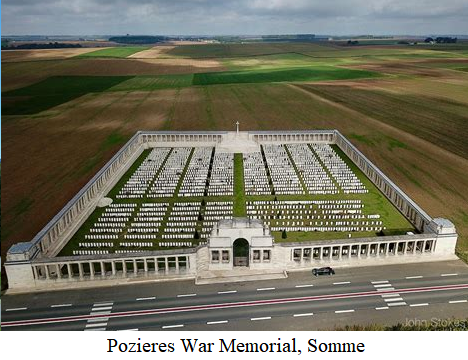
Harry Saunders (PC/SB)
Corporal 26395, 5th Bn. Oxford & Bucks Lt. Infantry.
Died Saturday 23 March 1918. Aged
31. Son of George Saunders; Husband of Elsie May Saunders, Collendean Farm, Norwood Hill, Horley, Surrey.
Memorial: Pozieres Memorial, Somme, France. Panel 50 & 51.
Norman Cyril Simmonds (PC/SB)
Lance Corporal 343191, 28311 Army Troops Coy., Royal Engineers.
Died Thursday 4th October 1917.
Cemeteiy: Zuydcoote Military Cemetery. Grave: I.G.25.
Frederick James Stevens (PC/LRB)
Private 20204, 2' Bn. Royal Munster Fusiliers.
Died Friday 4th October 1918. Husband of Rosa Stevens of Loosley Row.
Cemetery: Prospect Hill Cemetery, Gouy. Grave: II.C. 6.
Arthur Eldred Floyd Tilburv (PC)
Private 42624. 1st Bn. Worcestershire Regt.
Died Saturday 28th October 1916 Son of Eldred & Mary Ann Tilbury of Parsiows Hillock
Memorial: Thiepval Memorial, Somme, France. Pier & Face 5A & 6B.
Alec Harry Williams (PC/LRB)
Private G/9396. 13th Bn, Middlesex Regt.
Died Saturday 25th August 1917.
Memorial: Tyne Cot Memorial. Panel 113 & 115.
Percy Oliver Wood (PC)
Private 23035. 9th Bn, Essex Regt. South Wales Borderers.
Died Monday 3rd July 1916. Aged 21. Son of Frank Eustace Wood & the late Susannah Wood, Gryms Dyke Cottage, Lacey Green. Also served in Gallipoli.
Memorial: Thiepval Memorial, Somme, France. Pier & Face 1OD.
The following names are recorded on various Memorials within the Parish, but not in the Parish Church.
Ernest Alfred Biggs (LRB)
Private 16328. gth Bn. Oxford & Bucks Lt. Infantry.
Died Wednesday 30th June 1915 of spotted fever. Aged 29. Son of Leonard & Sarah Biggs of Loosley Row.
Cemetery: St. Lawrence Churchyard, Stratford-sub-Castle. Salisbury, Wilts. Grave 96.
Artie Ralph Bristow (SB)
Private 86478. Machine Gun Corps.
Died at Speen 15th October 1920. Aged 22. Son of Albert & Eva Jane Bristow.
Alfred Ridley (LRB)
Private 8091. 2'' Bn. King's Shropshire Lt. Infantry.
Died 7th May 1915. Aged 27. Son of William & Eliza Ridgley of Saunderton Lea, Bucks.
Memorial: Ypres (Memn Gate) Memorial. Panel 47 & 49.
Percy Ridley (LRB)
Private 26726. 2/1st Bucks Bn. Oxford & Bucks Lt. Infantry.
Died 22 April 1917. Aged 21. Son of William & Eliza Ridgley of Saunderton Lea, Bucks.
Cemetery: St. Sever Cemetery Extension, Rouen. Grave: O.IX.E.9
Charles Cecil Taylor (GOR)
Private 8147. 2' Bn. Royal Berkshire Regt.
Died 9th May 1915. Aged 30. Son of Jesse & Mary Taylor of 'The Pheasant', Redland End.
Memorial: Ploegsteert, Hainaut, Belgium.
When You Go Home, Tell Them Of Us And Say,
For Your Tomorrow, We Gave Our Today
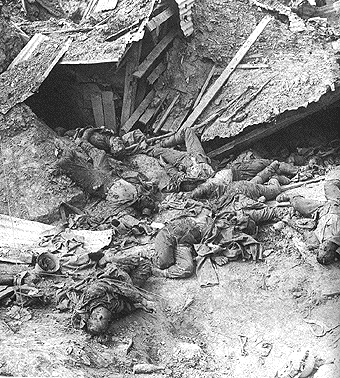
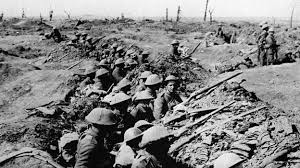


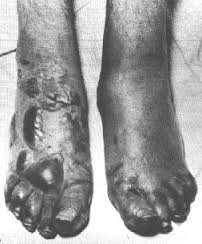
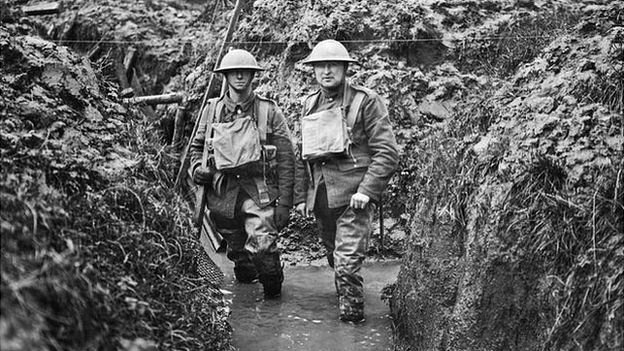
If I should die, think only this of me:
That there's some corner of a foreign field
That is for ever England. There shall be
In that rich earth a richer dust concealed;
A dust whom England bore, shaped, made aware,
Gave, once, her flowers to love, her ways to roam,
A body of England's, breathing English air,
Washed by the rivers, blest by suns of home.
And think, this heart, all evil shed away,
A pulse in the eternal mind, no less
Gives somewhere back the thoughts by England given;
Her sights and sounds; dreams happy as her day;
And laughter, learnt of friends; and gentleness,
In hearts at peace, under an English heaven.
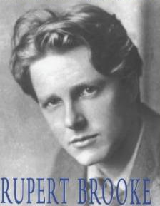
The Pink & Lily PH has a dedicated bar to Brooke who was a frequent visitor. He died before firing a shot from a disease from a mosquito bite.
There are only descendents now of those who lived through the Great War and still live in the village. Unlike the Second World War where we were able to provide memories by villagers of what it was like back then we have only managed a few anecdotes from relatives. Of course we welcome those and any more that anyone can provide.
Otherwise we have a great deal of researched information to give an idication of the difficulties of the time.
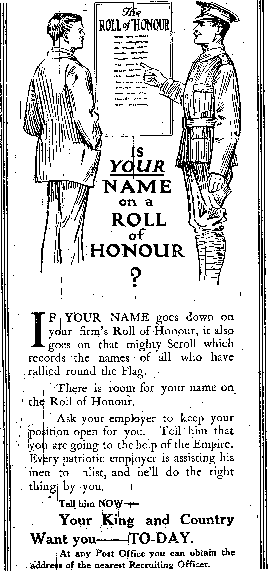
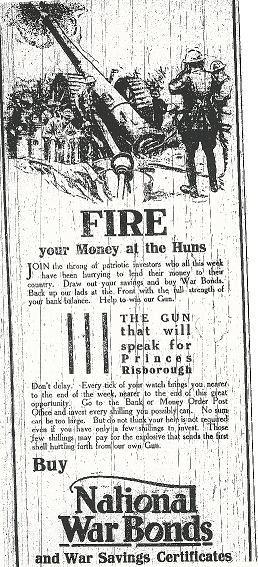
The next of kin of all those that died were to receive a memorial plaque and scrolls each embossed with their individual name and one signed by the King as depicted below.
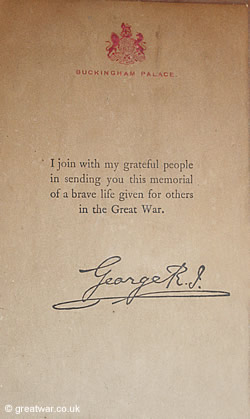
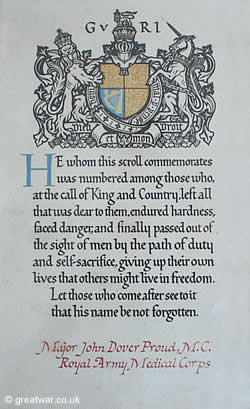

For The Fallen
With proud thanksgiving, a mother for her children,
England mourns for her dead across the sea.
Flesh of her flesh they were, spirit of spirit,
Fallen in the cause of the free.
Solemn the drums thrill: Death august and royal
Sings sorrow up into immortal spheres.
There is music in the midst of desolation
And a glory that shines upon our tears.
They went with songs to the battle, they were young,
Straight of limb, true of eye, steady and aglow.
They were staunch to the end against odds uncounted,
They fell with their faces to the foe.
They shall grow not old, as we that are left grow old;
Age shall not weary them, nor the years condemn.
At the going down of the sun and in the morning
We will remember them.
They mingle not with laughing comrades again;
They sit no more at familiar tables of home;
They have no lot in our labour of the day-time;
They sleep beyond England's foam.
But where our desires are and our hopes profound,
Felt as a well-spring that is hidden from sight,
To the innermost heart of their own land they are known
As the stars are known to the Night;
As the stars that shall be bright when we are dust,
Moving in marches upon the heavenly plain,
As the stars that are starry in the time of our darkness,
To the end, to the end, they remain.
Laurence Robert Binyon, 1869-1943